Hopelessly De-Voted has two aims. To reflect on what we feel about how our political system works and to test the Bubble’s ‘Foraging’ process on a contemporary subject. The Foraging process sounds a bit formal but it’s just an analogy to describe what we do when we work on piece of co-created intergenerational theatre – the analogy being the process of gathering and preparing ingredients for a meal*.We have used this process previously to explore two historical subjects – the bombing of SE London in 1940, and the impact of the closure of Surrey Commercial Docks. This gave rise to two pieces Blackbirds, and From Docks to Desktops, both of which had a range of offshoots – websites, roadshows, practical workshops, walks, maps – with lots of people contributing and many coming to see the performance pieces that emerged.
We don’t want to turn into a heritage arts organisation, we want to have a foot in the past and another foot striding forward so taking on a subject that is receiving a lot of attention at the moment is interesting.Hopelessly De-voted seems to have hit some sort of zeitgeisty moment. First of all the Scottish Referendum, then the Russell Brand stuff, followed swiftly by Jonny Rotten (or Lydon) wading in to the debate – currently people seem to be interested in how our political system is working, or not working, for us.
We started the project by shouting out to any previous Bubblers who would be eligible to vote for the first time at the election next May. In August, 16 young people met up for the first time. Facilitator Alex ran a series of mini elections, with each winner being given control of the next 10 minutes of the session. After various ‘leaders’ had implemented their manifestos – which included group hugs, walks in the park, tea breaks and a good lie down – corruption broke out. The first secret ballot led to the returning officer (Facilitator Alex) being offered a bribe (by candidate Tara) and the bribe being accepted (I am still shocked). Even though the irregular voting patterns were noted, the winning candidate (Tara) tried to implement her regime by gathering select friends and sharing chocolate with them.
Exercises like this prepared our young researchers for the business of interviewing. Since September they have recorded interviews with Councillors, Voters, Abstainers, Activists, a Returning Officer, the head of Ipsos Mori (Pollsters), people who count the votes, the Estonian embassy (Estonia leads the way in on line voting), people who have formed their own political party (2), a Mayor, the producer of Question Time and a number of others – and still the interviews go on !
Every interview is transcribed and read by me (the project director) plus one of the participants who are helping to explore the material. At this point we begin weekly intergenerational workshops, open to anyone aged 10 and above. So far 25 people have attended sessions where we have worked on the testimony from the interviews and on the images and statistics that have also been foraged.
This project did not set out to persuade people to vote, and it’s not about competing manifestos. But it does seem to be making members of the group quite passionate about the idea of representation.
And a rough aesthetic is developing. Paper has become very important – strewn, ripped, written on and folded, and a game called Political Zombies built from cruel media photographs of politicians is popular. A ritual called “we need a representative” is emerging. And Ties – neck ties, are being used for everything from imparting political statistics to skipping ropes. And the testimony is coming to life – the energy of someone running for election, the cool analysis of a thoughtful abstainer explaining how abstention is an important political action, people’s despair, a sense of alienation from the system and a continuing message from all sides that people can get involved in politics in far more interesting and meaningful ways than voting.
At this stage in the process we have no idea how all this will come together, and no idea where and in what form it will be performed. But we are starting to see what we have to cook with and the sort of flavours that are emerging. Soon the recipe writers will arrive and we will see what they make from the work done thus far.
*Basically we drill into the chosen subject by foraging for raw material – interviews and images and artefacts. Then we bring a group (usually an intergenerational ensemble of about 30) together to play with the material to see how what has been foraged might make theatre. Then after about 30 hours of playing (or prepping), we invite a writer, a designer and sometimes a composer in. Their job is to look at all the material, and all the playing and make a recipe – a script, design and sound bed. They go away and write and design, then bring their suggested recipe back to the group and it’s read and considered, before it’s re-drafted and eventually agreement is reached. Then we rehearse (cook) and share the outcome (feast). A fuller description of Foraging is here.
